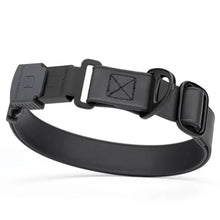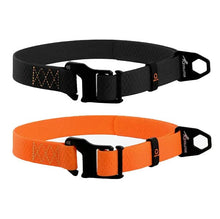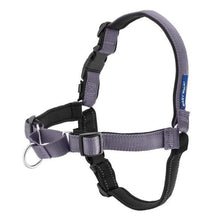7 Tips To Help You Care For A Senior Dog

Owning an older dog is a privilege. Whether you raised your senior since puppyhood, or you adopted an older dog, senior dogs are special and deserve all the extra love and care they need as they get older.
By the time your dog reaches their senior years, they know their basic commands, they’ve explored roaming many places with you, and they’re less active than they once were. Their more content to relax and don’t require the nonstop activity that they once craved. But that doesn’t mean they’re ready to stop living.
German shepherds are considered seniors when they reach age 7. Many are still very active at this age, but most are beginning to show the first signs of slowing down. There is also a second phase of the aging process, which is when they become geriatric.

According to the Journal of the American Animal Hospital Association, “The terms 'geriatric' and 'senior' also differ,” Dr. Lobprise says. “While a dog may be considered senior, they’re likely still healthy or just beginning to experience signs of aging. Geriatric animals are at the older end of the aging spectrum and often experience more health-related issues.”
German shepherds live to be 7 to 10 years, according to the American Kennel Club. But happily, many shepherds live to be 10 – 13 years old. By the time your dog reaches age 7, you should begin watching out for the first signs of aging so you can do what you can to keep them youthful and vibrant.
So, how do you recognize the signs of aging in your dog so that you can help them stay as healthy as possible for as long as possible?

1. Watch out for age-related changes and report them to your vet
As your dog ages, they’ll go through many changes. At first, the signs may seem subtle, but as time passes, they’ll be more pronounced. Many of the changes they go through can also mimic injury or illness so it’s important to be observant and talk to your vet about any concerns you may have. Some common signs of aging include:
• Changes in mobility
• Joint stiffness
• Unwillingness to do certain things they once enjoyed
• Exercise intolerance
• Changes in their eating and drinking
• Weight gain/loss
• Muscle loss
• Cognitive changes
• Heat/cold intolerance
• Vision and hearing changes
• Depression
• Anxiety
• Changes/problems urinating or defecating

2. Take them to the vet twice a year
Did you know that only 14% of senior dogs receive regular health screenings from their vet, according to the AHA? By taking your old dog to the vet twice a year, you can help prevent, screen for, and hopefully, recognize any health problems while they are treatable. Some common age-related health problems you and your vet should be on the lookout for include:
• Sudden weight loss or gain
• Canine dementia
• Kidney disease
• Liver disease
• Heart disease
• Periodontal disease
• Dehydration
• Check for lumps and bumps
• Cancers
• Diabetes
• Thyroid problems
• Orthopedic problems
• Joint disease
• Anemia
• Arthritis
3. Feed them a good diet
When dogs age, they usually require fewer calories but unless they have a health problem, they need adequate protein intake to maintain muscle mass. This can get even more complicated when an older dog loses their appetite, so they eat less.
Senior dog foods are usually created to be higher in protein while being lower in fat, but not always. Further, did you know the AAFCO doesn’t set standards for senior dog food? This means you really must read the label or ask the manufacturers why and what makes their food better for a senior dog to filter through the marketing.
For instance, some senior foods have botanicals to help protect cognitive function, and have additives for joint health, while others are simply lower in calories. You should always know what you’re feeding and why.

So, you don’t have to feed a senior food but, in many cases, good brands enhance their recipe for the needs of senior dogs. Your dog may also benefit from having more wet food added to their diet to make their food tastier while adding more moisture and making dry food easier to chew and swallow.
Changes to the appetite of seniors are also common and can be caused by slowing down but also can be a sign of an underlying health problem. So, it’s never a bad idea to talk to your vet about their diet and make changes, if and when they’re needed.
4. Add supplements
By the time your dog has reached their senior years, they can probably benefit from supplements to help keep them active, and healthy, and help their mind stay sharp. Some supplements to ask your vet about include:
• Omega oil (heart, brain, joints, and anti-inflammatory)
• Collagen (joints)
• Probiotics (gut health)
• Glucosamine and chondroitin

5. Keep them active
Keeping your dog active is important for their physical and mental health. But as they age, you’ll need to reevaluate how much exercise and what type is good for them. German shepherds will often push themselves, so this is very important to recognize their limits to prevent injury.
If they have arthritis, joint disease, heart problems, or other medical issues, your vet can help guide you. For example, a geriatric dog may no longer be able to walk a mile but might enjoy a few short walks spread throughout the day or even some time walking around the yard with you.
6. Provide mental stimulation
Your older dog may be slowing down, but they still enjoy being an active part of the family with plenty of mental stimulation. Since they may no longer be able to chase squirrels across the yard or catch a flying disc, you can continue providing this by doing things like taking a drive, going for a slow walk, teaching them a new trick, buying a new chew toy, talking to them, giving a massage, using food puzzles or snuffle mats, etc. They’ll appreciate you helping them keep their mind sharp.

7. Keep them comfy
Old age can mean more aches and pains for your pup. To help your senior stay more comfortable, consider providing them with more creature comforts such as:
• Orthopedic bed/s
• Ramps for the car
• Stairs for your bed or furniture
• Scatter mats to prevent slipping
• Socks or booties to prevent slips and falls
• Toe grips
• Lift harness
• Stair treads
• Extra padding for their kennel

We hope these tips help you keep your senior dog healthy for a long time. As always, please feel free to share with your friends.
You may also like: How To Keep Your Senior Dog Young






















